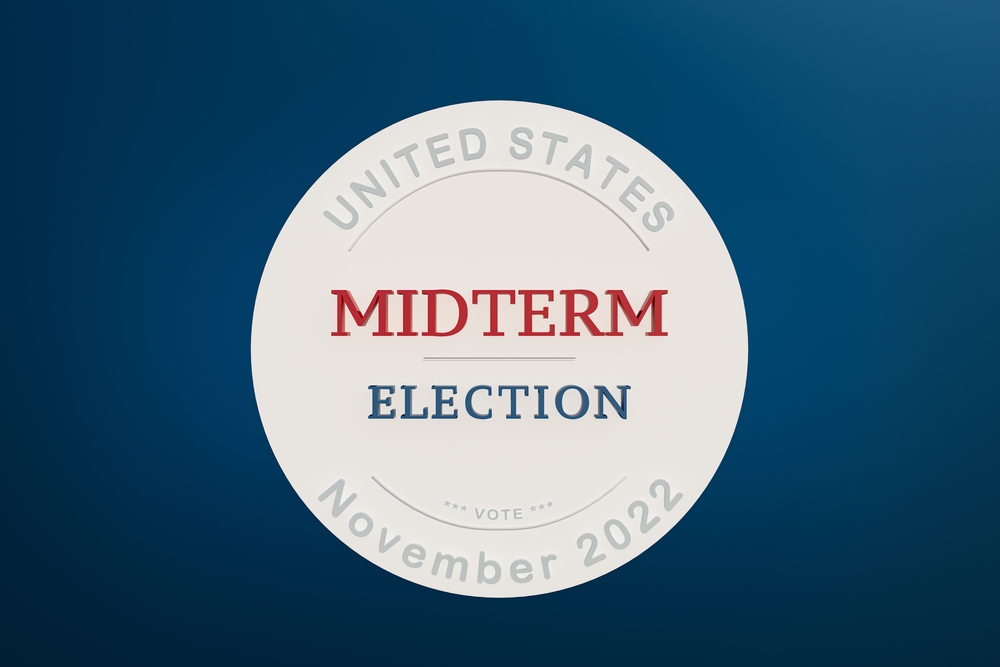The gap between Democrats and Republicans is only growing.
Republicans continue to move to the right while Democrats journey left, recent studies show. It can be dispiriting for politically moderate Americans.
But members of both parties do have one thing in common (I hope): They want a secure financial future for themselves and their families.
And if they own investments, they want to see them grow in value.
So with midterm elections right around the corner – Election Day is November 8 – it’s worth asking, how will this election impact the market and your portfolio?
First of all, this is a big election that could dramatically rearrange the current configuration in Washington.
Republicans need to gain just one seat to take control of the Senate and five to take the House. If they win either chamber (almost certainly the House and probably the Senate), we’ll revert to a divided government.
But that is not necessarily a bad thing…
No More Stimulus
Since World War II, the market has returned nearly 8% during periods of divided government. Sometimes a little gridlock – and the lack of major policy initiatives that comes with it – can be good for stocks. And our current economic problem, inflation, has historically been lowest under Democratic presidents when they’ve had to contend with a split Congress.
That certainly makes sense in the current context. With Democrats in control of Congress in 2021, the White House was able to push through $1.9 trillion in COVID-19 relief in March of that year. By providing so much stimulus when the economy didn’t need it, the legislation is at least partly responsible for the inflation we’re now experiencing.
If Republicans win the House or Senate, President Biden won’t be able to revisit the items of his “Build Back Better” agenda that weren’t passed.
More generally, there’s a strong historical correlation between stock market performance and midterm elections, according to research from Charles Schwab. For 17 of the 19 midterms since 1946, the market performed better in the six months following the elections than it did in the six months leading up to them.
Research from U.S. Bank confirms this. The S&P 500 has historically underperformed in the year leading up to midterm elections. That’s the case this time too (unless we have one hell of a rally over the next week). Right now the S&P 500 is down about 16% over the last 52 weeks.
But in the 12 months after midterm elections, the market has historically rallied for an average return of 16.3%. And the one- and three-month returns after midterms have significantly outperformed the returns for those periods in years with no midterm elections.
Wouldn’t that be welcome!
Of course, every midterm election year is different. Often, post-midterm markets rally because they’re anticipating new spending legislation that will boost the economy.
That’s not the case this time, of course. As I wrote above, some brakes on major spending and tax initiatives would be a good thing for this economy and market. And that would come from Republicans gaining control of one or both houses of Congress.
Turning Bullish?
Finally, the Stock Trader’s Almanac notes that many bear markets have occurred in midterm years, and they often bottom in October, right before the elections.
And the turnaround seems to occur in the days just before and after Americans head to the ballot box. Since 1934, the market has seen an average gain of 2.8% in the eight trading days surrounding midterm elections.
Interestingly, the market has been climbing in recent days, perhaps because investors anticipate a better political mix after the elections. Of course, there are many other factors involved at the moment – the Federal Reserve, the war in Ukraine and oil prices are just a few.
But here’s to hoping!
Speaking of the war in Ukraine…
Russian President Vladimir Putin made his greatest mistake with his unprovoked attack…
Now he has cut off all gas supplies to Europe through the Nord Stream 1 pipeline – meaning the European energy crisis just became an outright catastrophe.
Putin declared, “We will not supply gas, oil, coal, heating oil. We will not supply anything!”
If Europe goes into a deep recession… the American stock market could be hit hard too. But Alex believes there’s one company that stands to put a stop to the madness… and come out on top.
Tune in to the emergency summit here to learn how to play this energy crisis.
Invest wisely,
Matt
